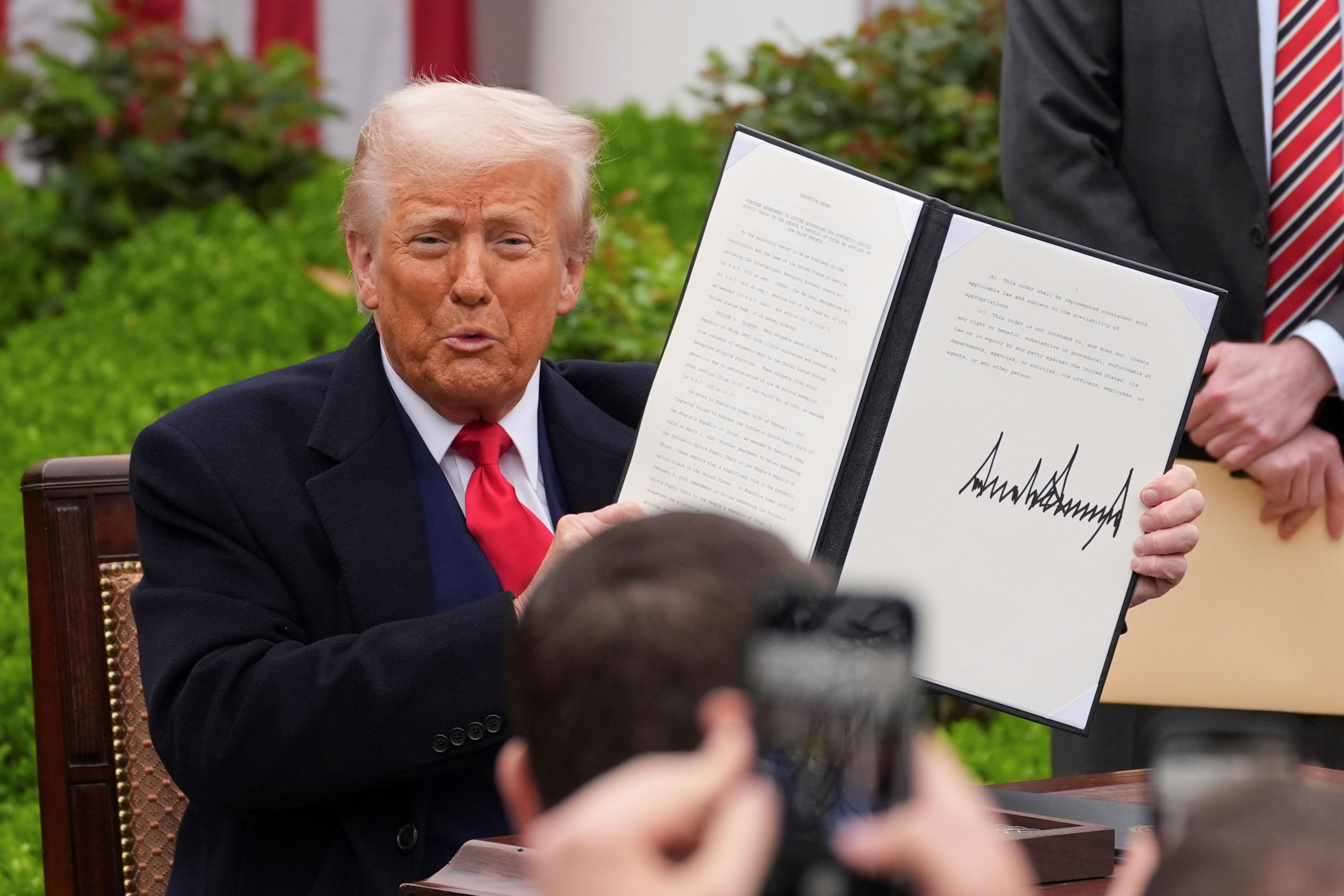
HONG KONG - Major economies in the Asia-Pacific region have voiced opposition to the recent US tariff hike, saying the protectionist move will not only hurt their economy but could backfire and jeopardize the current global trading system at large.
Japanese Prime Minister Shigeru Ishiba has said he plans to speak to US President Donald Trump over the phone as early as next week to discuss Trump's tariff hike.
"I will talk logically about how much Japan will benefit (the United States)," Ishiba said on a TV program on Saturday, adding that Japan will consider new investments in the United States.
Ishiba also indicated that Japan has no plans to impose retaliatory tariffs against the United States, saying, "We will not go tit-for-tat."
Trump announced a new set of levies on Wednesday, imposing a 10-percent baseline tariff on imports from all trading partners and higher rates on certain ones. With Japan being slapped with a harsher-than-expected 24-percent levy, Tokyo has been lobbying for an exemption.
Ishiba plans to ask Trump to reconsider the tariffs by highlighting Japan's contributions as the largest investor in the United States, local media reported, with the prime minister saying Friday that new US tariffs had triggered a "national crisis."
ALSO READ: Trump tariffs wipe $5 trillion off Wall Street
On Friday, Singaporean Prime Minister Lawrence Wong said in a video message that the US tariff move marks "a seismic change in the global order" and poses serious threats to small and open economies like Singapore.
"We are entering a new phase -- one that is more arbitrary, protectionist, and dangerous," Wong said, adding that the United States is "abandoning the entire system it had created" and the new approach of applying "reciprocal tariffs" on a country-by-country basis represents "a complete rejection of the WTO framework."
"If other countries adopt the same approach as the US-- abandoning the WTO and trading only on their own preferred terms, country by country -- it will spell trouble for all nations," he said.
Wong also warned that the higher tariffs, combined with the uncertainty over how other countries might respond, would weigh heavily on the global economy. "International trade and investments will suffer, and global growth will slow."
ALSO READ: Japan seriously concerned US reciprocal tariffs not in compliance with WTO rules
In the latest survey by the American Chamber of Commerce in Singapore, more than two-thirds of the chamber's members view the US "reciprocal tariffs" as a greater business concern. Over 70 percent of respondents anticipate a negative impact on their operations. Nearly half plan to pass increased costs on to consumers.
The Australian government also expressed its opposition to the US tariff decision. Prime Minister Anthony Albanese said Thursday that the tariffs have "no basis in logic" and were "not the act of a friend."
Treasurer Jim Chalmers said that the United States represents about 5 percent of Australia's export market, but that the economy would not be "immune" to the global impacts of the tariffs.
"These escalating trade tensions, these tariffs announced by the Trump administration in Washington DC, are self-defeating, they are self-sabotaging, and in a time when there's not a lot of growth in the global economy, this will slow global growth and it will push prices higher as well around the world."
READ MORE: Vietnam regrets US tariff decision
In the Southeast Asian country of Indonesia, experts project that the newly announced US tariffs will likely trigger an economic recession by year-end, hitting the country's exports and weakening the rupiah.
Wijayanto Samirin, an economist at Paramadina University, said the tariffs will erode Indonesia's projected 5 percent economic growth, warning that the US tariffs will cause job losses in Indonesia, as labor-intensive industries dominate the country's exports to the United States.
On Friday, Indonesia said it was working closely with Malaysia, another member state and this year's chair of the Association of Southeast Asian Nations (ASEAN), to respond to new US tariffs.
In a meeting on the day between Indonesian Coordinating Minister for Economic Affairs Airlangga Hartarto and Tengku Zafrul Abdul Aziz, Malaysia's minister of investment, trade and industry, they acknowledged that the US tariff policy poses a major challenge to the dynamics of global trade and discussed ways to strengthen ASEAN's regional economy.
"It's necessary to synchronize between ASEAN countries because all 10 ASEAN countries are affected by the US reciprocal tariff policy, so it is necessary to collectively build communication and engagement with the US government," said the Indonesian official.


